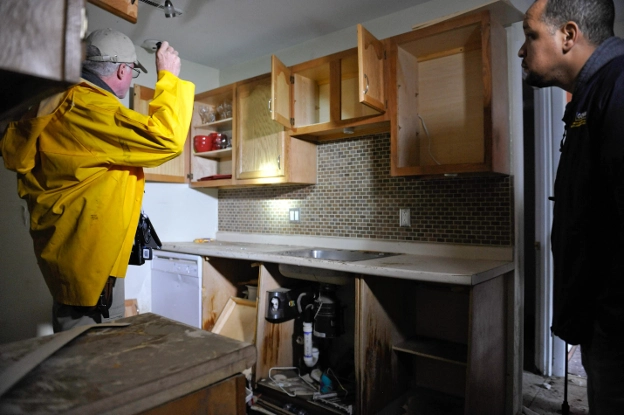How to Buy a House - Part 5 - Under Contract

You’ve done everything right, from getting pre-approved before beginning your house hunt to analyzing the numbers before you wrote the offer, and after some back and forth, you get word that the seller has accepted your offer. Let the celebrations begin! (Sort of.) You may have beat out other offers to get here or conceded a thing or two to make this happen, but now that the seller is in contract with you, your real work begins.
"CONGRATULATIONS! YOU'RE UNDER CONTRACT!"
If you’re new here, welcome! This is part 5 of our home buying series and you’re welcome to head back to the home page at AskATexasAgent.com and start from the beginning if you’d like or, if this is exactly where you want to be, I’m happy you’re here.
After you've written, signed, and submitted the offer, when the seller accepts it by executing it, you're under contract and the game is afoot! Whether or not you choose to have an option period (a time in the contract in which you as the buyer can choose to terminate the contract for any reason), you'll want to get a home inspection. A home inspection is the careful looking over of a property you intend to purchase by a person licensed to perform the inspection. Having a home inspection, by a state-licensed inspector, is important because it lets you know what you're getting into with regard to the function, foundation and systems of the home.
*Note* Even if it is a brand-new house, you still want an inspection. (I'll go over that one in detail on my upcoming new construction post.)
During a standard home inspection, the inspector goes through the house and, depending on the size and amenities of the property, takes anywhere from 4 to 6 hours (maybe more if it's a really big house) to evaluate as much of the house as he/she has access to. This includes any attached appliances (stove, dishwasher, disposal, sink), and the inspector will often visually inspect the HVAC systems, electrical, walls, floors, attic, et cetera. It’s important to note that the inspector will not move things or destroy the property to gain access to items in order to evaluate them so their evaluation is not always going to catch absolutely everything, but it's an excellent start. Home inspectors are also not usually licensed to do specialty inspections on things that require special licenses to work on or install such as electrical, plumbing, the HVAC system or the foundation, so they will often include in their report a recommendation to have something further evaluated by another professional who holds the particular license necessary. The home inspector's evaluation is a lot like going to see a general practitioner, if the GP sees something's amiss, he'll likely refer you to a specialist to have it further evaluated. Better to know now than later, when you own it, and it's your problem.
Even if you have no intention of negotiating any repairs, you'll still want a punch list of "to-dos" to properly maintain your home as you live in it. If you find something on the inspection that is just terrible, but you still want the house, you may be able to ask the seller to fix the terrible thing or negotiate some other appropriate solution to the problem. If you can't come to terms, depending on how you wrote the offer, you may be able to terminate the contract, and continue your house hunt.
There were a LOT of "if's" in that paragraph and some of this is vague, and the reason for that is each and every transaction is different. You'll want to know all your options as they impact your specific parameters, and, again, that's what a great buyer's agent can do for you. SO don't panic or get mired in the weeds here, just know there's a lot of moving parts, but they all have their time and place in the process. Bottom line, get an inspection.
I also recommend attending the post-inspection walk through with the inspection. To be clear here, I DID NOT say attend the entire inspection. Yes, you paid for it, and likely a pretty penny, so why would I tell you not to attend all 6 hours of the inspection?! Pretty simple, you hired a professional to do a job and you don’t want to get in that professional’s way. Inspectors are human and can make mistakes even on a perfect day with zero distractions, because this is a big investment in your future, you don’t want your inspector distracted by someone following them around and asking questions. The time for questions and following the inspector around is during the walk through at the END of the inspection. Usually the last 30-45 minutes of the inspection time slot is set aside specifically for the inspector to go over their findings with the buyer and they will walk you through all their findings right then and there. This walk through time is when you can ask all the questions you need to as well as lay eyes on the problem areas real time. And THAT is why I recommend attending the walk through.
If you can’t physically attend the inspection walk through, don’t panic. Ask what kind of reporting options the inspection company has; can you attend the walk through virtually via Zoom or through a proxy being there in your stead? Some inspection companies offer video reports that walk you through the report they furnish with a video of the trouble spots. If none of those options are available, you will still have the benefit of the entire formal inspection report that you and your agent will be reviewing once it’s been delivered.
We've covered the importance of the inspection and we'll review the part it pays in the next post, but that's not the only thing that's happening once your offer is accepted. Your agent sends the executed offer to the title company, and to your lender because their part kicks into higher gear now.
The title company will start by reaching out to you to arrange payment of your option money and earnest money. You can still go into the title company with checks in hand and deliver your earnest and option funds however, it can more easily be accomplished through wire transfer or through a Venmo-like secure payment system called Zoccam. That said, wire transfer fraud is a very real issue in today's electronic age so when you receive wire transfer information from a source claiming to be a title company check the following steps:
Be sure to confirm the name of the title company by matching it to the named title company on your executed contract.
Look up the title company online and call the number on the website to confirm you've been sent wiring instructions. This is important because simply using the number listed on the email is not sufficient to confirm the correct title company.
While on the phone, ask for the escrow officer who sent the email and then confirm the routing number and account number on the instructions with them.
This may seem a bit excessive, but it really only takes a few minutes to do and can save more than just your money, it can save your peace of mind and your entire transaction.
Once the earnest and option payments are received, the title company sends a receipt of these payments to all parties and your lender so that they can confirm that the contract is still on track and moving forward. Meanwhile, the lender, now in receipt of the contract and corresponding documents will begin working on finalizing the loan for you. They are going to send you more requests for additional information from their underwriters and they may need updated documents from you depending on how far apart the original pre-approval and the contract are in the timeline.
There's a lot going on behind the scenes by several people as everyone works together toward your closing date, but let's allow them to keep working while we switch our focus back to the inspection report in the next chapter.
The Takeaway:
Get a home inspection! Spend the money to get the house checked out before you commit to buying it. The worst thing you can possibly do is to not try and gather as much info as possible about the house you're buying. Also, you will want to make sure your earnest and option fees are sent and accepted securely by following some precautionary steps. Both the inspection and the double checking of wiring instructions can save you thousands and get you one step closer to your dream of homeownership.
And, as always, a reminder that I LOVE what I do and I LOVE talking about real estate, so if you have questions, please ask. Questions give me purpose, and they give me more blog topics too!
Happy Hunting!
Emerald Scott-Farmer, Agent/Owner of
The EMERA Group of Keller Williams
Emerald@emeraldsellshomes.com
** I am not an attorney and cannot give legal advice. **
(But I know some good ones if you want recommendations)


